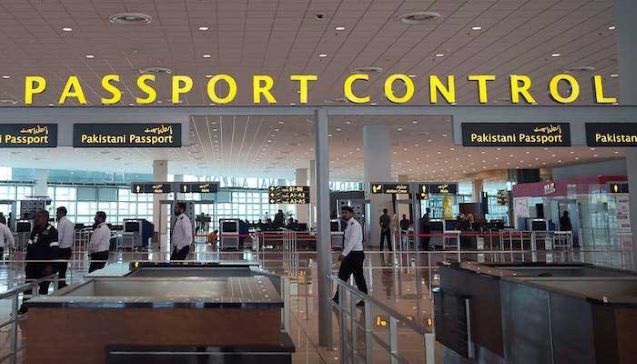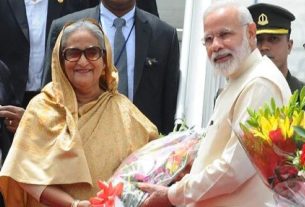Studying abroad is increasingly becoming the goal of every Pakistani student. More than 100,000 to 150,000 Pakistani students are granted study-abroad visas to pursue their education in over 100 countries but they face several challenges
Pakistan is one of the most populated countries in the world and boasts, perhaps, the largest proportion of young people among the world’s most populous countries. Driven by aspirations for superior academic standards, international exposure, and enhanced career prospects, there has been a notable surge in Pakistani students opting to pursue higher education abroad in recent years.
The youth is disappointed with the quality of education on offer (whether public or private sector), the lack of research-oriented fields, and favouritism at local colleges and universities. They are also disappointed with the state, which has not yet established any educational institute that can compete according to international standards.
Thus, studying abroad is increasingly becoming the goal of every Pakistani student. More than 100,000 to 150,000 Pakistani students are granted study-abroad visas to pursue their education in over 100 countries. The USA, UK, China, Sweden, Canada, Italy, Germany, and Australia are among the most popular destinations for Pakistani students to study-abroad. Here is the estimated number of Pakistani students studying abroad: USA (5,000-10,000), UK (15,000-20,000), China (30,000-40,000), Australia (10,000-15,000), Germany (5,000-10,000), and other countries (20,000-30,000). This number has been increasing day by day due to the increasing demand for higher education, limited capacity in domestic universities, growing middle class with the ability to afford international education, government scholarships and other initiatives to promote international education.
This growing trend underscores the increasing globalisation of education and the desire among Pakistani youth to access opportunities beyond their national borders due to the low quality of education available to them domestically. Many students, in fact, make it their life’s goal to pursue higher education elsewhere and then use it as a route to get settled down there permanently.
The reason for this is simple. Studying abroad offers Pakistani students abundant opportunities for both academic and personal development, although it also introduces them to significant challenges specific to Pakistani students, stemming from cultural, financial, and academic differences which demand thoughtful navigation and proactive solutions. These challenges encompass a spectrum of issues ranging from cultural adaptation and language proficiency to financial constraints and the complexities of visa processes. On top of that, academic expectations and differences in educational systems pose significant hurdles. Each obstacle requires tailored strategies to ensure Pakistani students can successfully integrate into and thrive within international academic environments.
Addressing these issues not only enhances the individual experiences of students but also contributes to the broader advancement of Pakistan’s educational sector, fostering a more globally competitive generation of scholars and professionals.
Financial constraints
One of the primary challenges Pakistani students face in their quest to study abroad is financial affordability. Tuition fees, living expenses, and currency exchange rates often present insurmountable barriers for many Pakistani families because the value of the Pakistani Rupee has sunk to such depths that a single US dollar (August 7, 2024) costs around Rs278.5. Because of these circumstances, even the wealthiest people in Pakistan are forced to lead modest lives in developed countries. Managing spending becomes extremely challenging as the Pakistani currency’s value has diminished by more than 100%.
When they undertake a cost analysis, Pakistani students find that overseas university tuition is surprisingly and excessively expensive. The ordinary Pakistani cannot afford the cost of international flights, rent, food, and transportation.
Some of the students also have been found to smoke or use drugs more than domestic students, and they are also usually labelled as problem gamblers due to their physical and mental health issues.
In a developed foreign country, one can only purchase a cup of coffee with a monthly wage of Rs12,000 in Pakistan.
Scholarships and financial aid options are limited and highly competitive, further exacerbating the financial strain.
Cultural adaptation and social integration
Among the foremost challenges faced by Pakistani students studying abroad is cultural adaptation. Transitioning from Pakistan’s close-knit, family-centric culture to a foreign land with distinct social norms and customs can prove daunting.
Moreover, adapting to a more independent lifestyle, language barriers, navigating social etiquette, and encountering cultural disparities within academic settings frequently present initial obstacles for students, further contributing to potential stressors that may affect both academic achievement and emotional resilience.
Adapting to a new cultural environment and social norms can be overwhelming. Pakistani students may face isolation, discrimination, or difficulty in forming meaningful social connections. Students also have a strong emotional desire for food that is both familiar and satisfying, especially for those adhering to certain strict dietary laws such as halal, kosher, and even vegetarian may find it difficult to find good food there.
Hence, homesickness, issues of identity loss, food insecurities, difficulties with weight loss or weight gain, and issues regarding compromising on religious beliefs to eat increase depression among students. Some of the students also have been found to smoke or use drugs more than domestic students, and they are also usually labelled as problem gamblers due to their physical and mental health issues.
Most of the students are also unable to seek help for mental health issues, relationship issues, or alcohol/substance abuse issues, even if they are suffering from the same levels of general psychological distress, study stress, or financial stress as locals. This cultural adjustment can impact their academic performance and overall well-being.
Proficiency in the language of instruction (often English) is crucial for academic success abroad, and many Pakistani students struggle with language barriers. These barriers affect their ability to comprehend lectures, participate in discussions, and excel in coursework. The differences in educational systems between Pakistan and host countries also pose high academic challenges.
Students need to plan for their tuition, accommodation, food, and travel expenses. They must look into financial savings options and scholarships. Students who learn the native language can interact with peers and teachers and adjust better to the new culture
Pakistani students may find it challenging to adapt to new teaching methodologies, evaluation criteria, and academic standards, affecting their academic performance and confidence. The pressure to succeed academically, financial worries, cultural isolation, and the distance from family and familiar support networks significantly impact the mental health of Pakistani students abroad; unfortunately, access to mental health services and support systems is also often limited for them.
The other challenge Pakistani students face is securing a student visa for countries with stringent immigration policies since it can be a complex and time-consuming process. Pakistani students often encounter delays, rejections, or uncertainties regarding their visa approvals, which disrupt their educational plans and cause undue stress.
Proposed solutions
Addressing these challenges requires a multifaceted approach involving educational institutions, governmental policies, and support networks. Initiatives such as expanding scholarship opportunities, enhancing pre-departure orientation programmes, fostering cultural competence among educators, providing language support services, and establishing robust mental health resources can significantly alleviate the difficulties faced by Pakistani students studying abroad.
It is also important to do research before studying abroad. To prepare for any surprises, students should research the culture and academic programme they will be attending.
Planning a budget is equally crucial when studying overseas. Students need to plan for their tuition, accommodation, food, and travel expenses. They must look into financial savings options and scholarships. Students who learn the native language can interact with peers and teachers and adjust better to the new culture. Students should take language classes and enrol in the courses before or during their study abroad programme.
Further, to build a support system, students should make an effort to socialise. It helps students feel more a part of the community and less homesick.
Studying abroad can be a transformative experience for Pakistani students, offering invaluable opportunities for personal growth, academic enrichment, and a global perspective. Pakistan may catch up to the rest of the world in terms of culture and technology if its students can travel abroad, observe how their education is progressing elsewhere, and then apply that information back home to further Pakistan’s growth.
In conclusion, by recognising the mentioned challenges and implementing targeted solutions, stakeholders can empower Pakistani students to navigate and excel in international educational environments effectively. Addressing these issues not only benefits individual students but also contributes to the advancement of Pakistan’s educational landscape and its global competitiveness. While the path to studying abroad for Pakistani students is beset with challenges, proactive measures and support systems can pave the way for a successful and enriching educational experience abroad.__Courtesy The Friday Times





